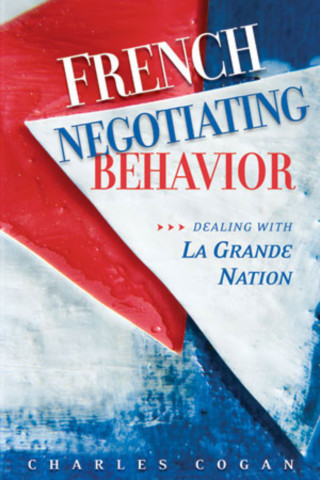French Negotiating Behavior
Even before it led opposition to the recent war on Iraq, France was considered the most difficult of the United States’ major European allies. Each side tends to irritate the other, not least at the negotiating table, where Americans complain of French pretensions and arrogance, and the French fulminate against U.S. hegemonisme and egoisme. But, whether they like it or not, the two nations are going to have to deal with one another for a long time to come.
Charles Cogan’s timely and insightful study can’t guarantee to make those encounters more fruitful, but it will help France’s negotiating counterparts understand how and why French officials behave as they do. With impressive objectivity and authority, Cogan first explores the cultural and historical factors that have shaped the French approach and then dissects its key elements. Mixing rationalism and nationalism, rhetoric and brio, self-importance and embattled vulnerability, French negotiators often seem more interested in asserting their country’s “universal” mission than in reaching agreement. Three recent case studies illustrate this distinctively French mélange.
Yet agreement is by no means always elusive. Cogan offers practical suggestions for making negotiations more cooperative and productive—although he also emphasizes the long-term damage inflicted by the crisis over Iraq.
Drawing on candid interviews with many of today’s leading players on the French, American, British, and German sides, this engaging volume will inform and stimulate both seasoned practitioners and academics as well as students of France and the negotiating process.
This book is the recipient of the Prix Ernest Lémonon from L'Académie des Sciences Morales et Politiques, 2006
Charles Cogan
Charles G. "Chuck" Cogan was an academic and an officer of the Central Intelligence Agency (CIA) from 1954 to 1991. From 2006 until his death he was an Associate at Harvard University's Belfer Center for Science and International Affairs. At the CIA Cogan's roles included chief of the Near East and South Asia Division in the CIA's Directorate of Operations (mid-1979 to mid-1984) and Paris station chief (1984–1989). He graduated from the John F. Kennedy School of Government at Harvard University in 1992 with a Doctor of Public Administration degree.

